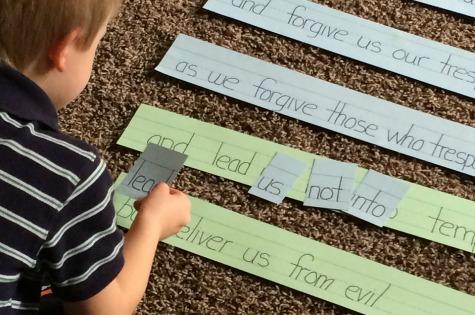It’s no secret that good education starts with the family at home. As the basic institution of modern society, the child’s family is their first exposure to a social group, which means that it’s also the first opportunity to mold the child through proper education. Take advantage of your child’s formative years by providing them with a home that’s highly conducive for their personal learning. There are several ways to accomplish this:
#1 Make Sure the Child’s Room is Comfortable and Study-Friendly
Let’s start with the basics: it’s harder to learn anything when you’re in an uncomfortable environment. So first things first: make sure that your child’s bedroom is neither too hot nor too cold, has adequate lighting, is equipped with a properly supportive mattress, and has a comfy chair and table for studying purposes. If either you or the child feels that the room is too small for comfort, you can introduce both traditional and alternative storage options to reduce clutter and give the child more space. Apart from making the bedroom seem bigger, eliminating clutter also means less visual and tactile distractions for when the child is studying or trying to focus. Making these simple changes to your child’s bedroom can go a long way towards promoting good study habits.
#2 Allow the Child to Make the Bedroom Her or His Own
Are you planning to buy new stuff for your kid’s bedroom? Ask them their color and theme preferences and see however you can accommodate their requests given your budget. Help them decorate their room with any and all accomplishments they’ve ever received via a shelf or a wall-mounted corkboard. Let them choose what posters, pictures, and other decorative items they want placed in the bedroom. Giving your child the chance to personalize the look and feel of their own bedroom not only gives them confidence, but also a sense of safety and security from ‘being in their own territory’ - both great attitudes conducive for focused learning.
#3 Designate a Dedicated Study Space and Never Let Them Study in Bed
If you’re serious about creating a home that’s conducive to your child’s education, the most ideal situation would be to provide a study area that’s completely separate from the bedroom. But if you don’t have extra room for a designated study room at home, creating a dedicated study corner in the child’s bedroom is a perfectly acceptable solution. Just make sure that they never take the studying to bed.
One of the best way to ensure healthy sleep is by using the bed only for sleep and never for any stimulating activities like playing video games, reading interesting books, online messaging, and of course focused study. Consistently following this rule allows the mind to very strongly associate the bed with sleep, which makes sleeping less difficult when you’re already lying in bed. Likewise, if the child has a dedicated study area, that area becomes very strongly associated with brisk mental activity, and just being in that area can prompt the child’s mind to prepare for some hard work. Make sure that everything your child needs in order to focus on studying is within arm’s reach when they’re in the study nook/area.
#4 Recognize the Strengths and Weaknesses of New Technology
In recent years, we’ve all seen how new technology has taken over how the youth interacts with the world. In many ways, these advances have made the non-digital world less interesting for children. There’s no question that certain aspects of new technology available to the youth can make it more difficult for them to focus on their studies.
Yet at the same time, it is these new technologies that allow our children near-instant access to an infinite amount of valuable information. As a parent or guardian, it’s necessary for you to understand the different sides of the debate when it comes to children’s education and new technology. As Uncle Ben said to Peter, with great power comes great responsibility, and it’s up to you to be responsible for how your child handles and interacts with the great power that comes with the most recent technological advances.
Instead of completely preventing your child from going online, teach them how to use the Internet to gather information that’s relevant to their studies. Opt for a fast computer that can be a tool for both play and study instead of a gaming console that’s dedicated for just playing games. If you do get your kids a console, limit playing time to just a couple hours each day during school days. Let them get really good at typing, but at the same time, make sure their handwriting skills are still being developed properly. Show them that while the Internet has an answer for nearly every question, there’s more to life, learning, and experience than just relying on Google.
#5 Explore Other Areas of Learning Apart from Academic Study
Teach your kids that learning isn’t limited to what their computer or teacher can tell them and what they can read about in their study corner. Simple household chores like folding the laundry, raking up the leaves, or shovelling snow are great opportunities to teach them practical skills they’ll be able to use throughout their lives.
You can also get creative about teaching your children practical skills: a weekend bike ride can also be an opportunity to learn about speed and distance covered over time (use your phone’s fitness tracking app). When you’re buying your child a toy, let them compute how much money is needed to pay and correct their mistakes gently. Even a game of I Spy during a long road trip can be turned into a mentally stimulating learning experience. Remember: your child’s education is not just about academic performance. Helping them build practical and social skills as well can ultimately help them succeed in the future.








 Agree (0)
Agree (0) Disagree (
Disagree (









__small.png)










